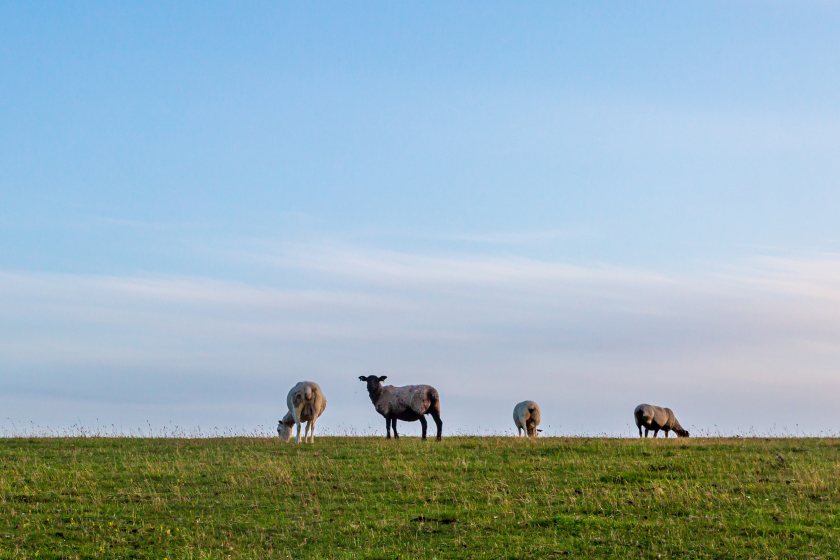
The first cases of bluetongue (BTV-3) in the UK this year have been confirmed, with infections detected in Buckinghamshire, Herefordshire and Oxfordshire.
Authorities have declared the UK to be in a vector high-risk period, meaning midge activity is currently elevated, significantly increasing the risk of virus transmission between animals.
In Herefordshire, two cattle tested positive following non-negative pre-movement tests, though no clinical signs were observed in either animal.
In Oxfordshire, a single sheep tested positive after displaying suspicious clinical signs, including hot and painful feet, reluctance to move, and general malaise.
And in Buckinghamshire, one sheep in was confirmed positive following a report of suspicious clinical signs.
While the virus poses no risk to public health or food safety, it can cause severe illness and production losses in ruminants, including sheep and cattle.
The UK's chief veterinary officers are urging farmers to remain vigilant, as any animals displaying signs consistent with bluetongue must be reported immediately to authorities.
They also explain that the BTV-3 vaccine remains the only effective tool currently available to protect against infection and associated production losses.
Earlier this month, an England-wide bluetongue restricted zone was introduced, replacing the previous patchwork of localised zones.
The development prompted concern as farmers moving animals into Scotland and Wales were subject to tough pre-movement testing requirements.
However, the Welsh government recently announced bluetongue approved 'red markets' to support livestock farmers grappling with the disease control measures.
The change, which came in effect from 14 July, allows livestock to be moved from the England's bluetongue restricted zone to approved markets in Wales.
Announced by the Welsh government earlier this week, it permits direct onward movement to designated slaughterhouses either in Wales or within the restricted zone.
Dr Angus Wyse, official veterinary officer for the National Sheep Association (NSA) Wales & Border Ram Sales, recently issued a stark warning that the arrival of bluetongue in Wales is a matter of when, not if.
“Midges carrying bluetongue won’t stop at the Welsh border,” said Dr Wyse. “The disease could have catastrophic consequences for sheep farmers.
"With mortality rates reaching up to 70% in sheep, vaccination is a no-brainer. It’s an insurance policy we can’t afford to ignore.”
Dr Wyse highlighted the crisis in the Netherlands, where bluetongue outbreaks overwhelmed carcass disposal services.
He urged Welsh sheep farmers to act now—especially with current livestock prices making vaccination a cost-effective safeguard.
Bluetongue is a notifiable animal disease. If you suspect it, you must report it immediately:
• In England, call the Defra Rural Services Helpline on 03000 200 301
• In Wales, contact 0300 303 8268
• In Scotland, notify your local Field Services Office
Failure to report suspected cases is a criminal offence.
